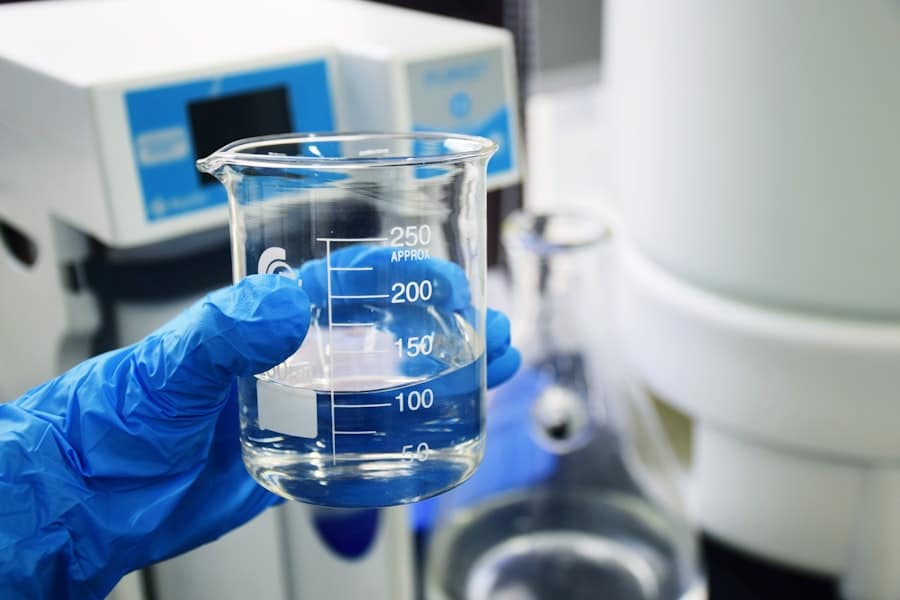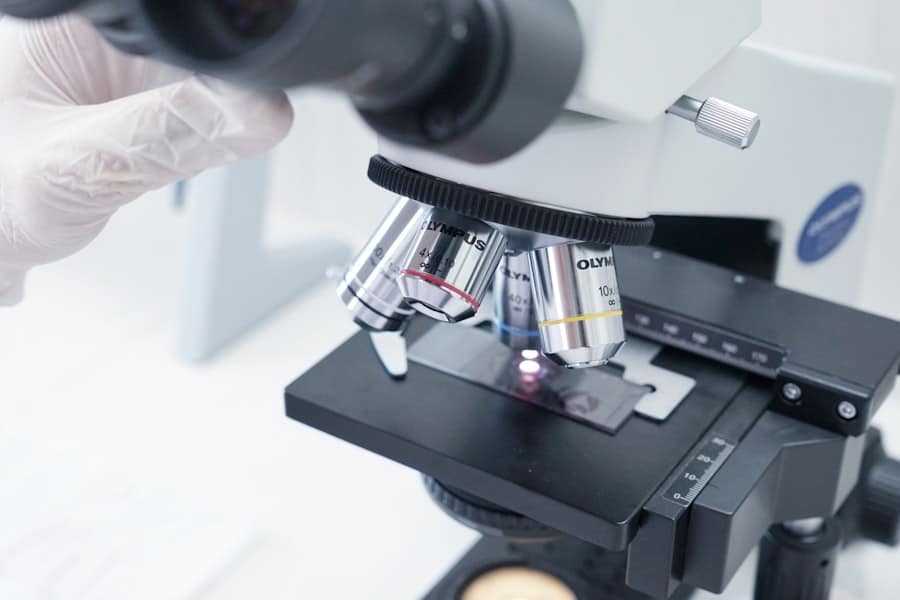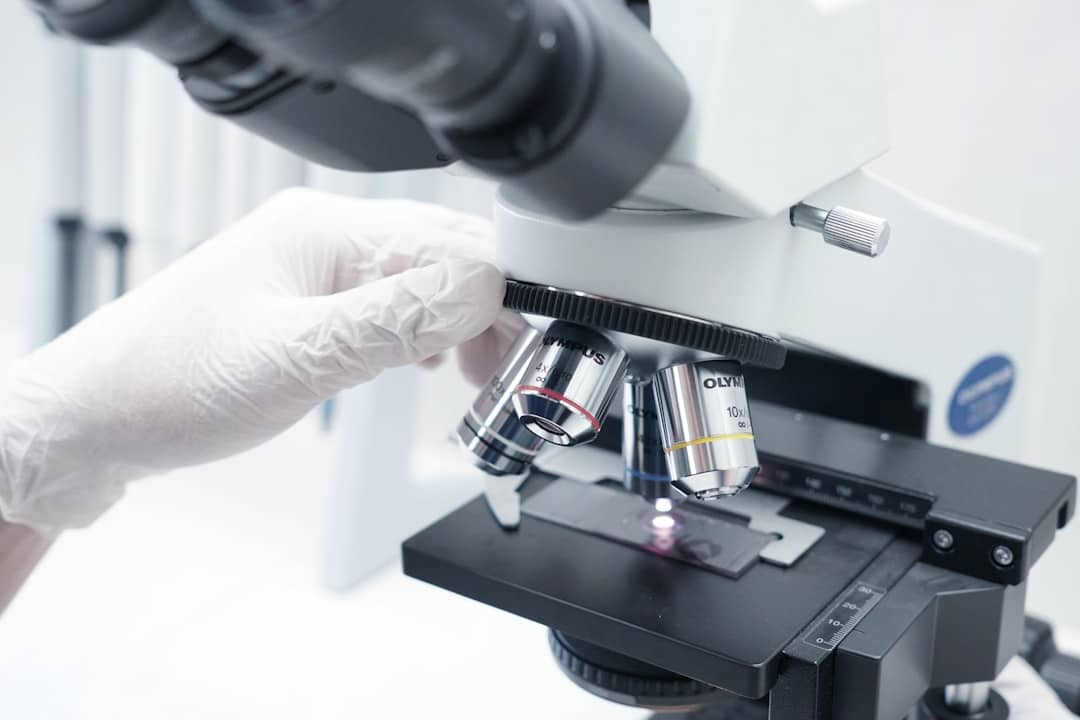Biotechnology, a field that harnesses biological systems and organisms to develop products and technologies, has emerged as a pivotal player in the quest to understand and combat aging. As the global population ages, with projections indicating that by 2050, over 2 billion people will be aged 60 and older, the urgency for innovative solutions to age-related challenges has never been greater. Aging is not merely a biological phenomenon; it encompasses a myriad of social, economic, and health-related issues.
The intersection of biotechnology and aging research offers a promising avenue for addressing these multifaceted challenges, providing insights into the biological mechanisms of aging and potential interventions to enhance healthspan—the period of life spent in good health. The exploration of aging through a biotechnological lens involves a diverse array of disciplines, including genetics, molecular biology, and bioinformatics. Researchers are increasingly leveraging advanced techniques such as CRISPR gene editing, stem cell therapy, and regenerative medicine to unravel the complexities of aging.
This interdisciplinary approach not only enhances our understanding of the biological underpinnings of aging but also paves the way for innovative therapies aimed at prolonging life and improving quality of life in older adults.
Key Takeaways
- Biotech plays a crucial role in unraveling the biological mechanisms behind aging.
- Advances in biotech are driving significant progress in longevity and anti-aging therapies.
- Biotech innovations are targeting age-related diseases to improve healthspan.
- Ethical issues must be addressed as biotech interventions in aging become more prevalent.
- Future biotech research holds promise for extending human lifespan and enhancing quality of life.
The Role of Biotech in Understanding the Aging Process
Biotechnology plays a crucial role in elucidating the biological processes that contribute to aging. One of the primary focuses of aging research is the study of cellular senescence, a state in which cells lose their ability to divide and function properly. This phenomenon is linked to various age-related diseases, including cancer, cardiovascular diseases, and neurodegenerative disorders.
Through biotechnological advancements, researchers can now investigate the molecular pathways that lead to cellular senescence, identifying key biomarkers that signal the onset of aging at the cellular level. For instance, scientists have utilized high-throughput sequencing technologies to analyze gene expression profiles in aged tissues compared to younger counterparts. This approach has revealed significant changes in gene regulation associated with aging, including alterations in pathways related to inflammation and oxidative stress.
By understanding these molecular changes, researchers can develop targeted interventions aimed at mitigating the effects of aging. Additionally, biotechnology enables the use of animal models to study the effects of genetic modifications on lifespan and healthspan, providing valuable insights into the mechanisms that govern aging.
Biotech’s Impact on Longevity Research

The impact of biotechnology on longevity research is profound, as it opens new avenues for extending human lifespan through scientific innovation. One notable area of focus is the study of telomeres—protective caps at the ends of chromosomes that shorten with each cell division. Telomere shortening is associated with cellular aging and has been linked to various age-related diseases.
Biotechnological approaches have led to the development of therapies aimed at preserving telomere length or enhancing telomerase activity, an enzyme that can extend telomeres. Research has shown that manipulating telomerase activity in model organisms can lead to increased lifespan and improved health outcomes. For example, studies involving mice with enhanced telomerase expression demonstrated not only extended lifespan but also a reduction in age-related pathologies such as osteoporosis and cardiovascular disease.
These findings underscore the potential for biotechnological interventions targeting telomere dynamics as a means to promote longevity in humans. Furthermore, ongoing clinical trials are exploring the safety and efficacy of telomerase activators in older adults, marking a significant step toward translating these discoveries into practical applications.
Biotech Innovations in Anti-Aging Therapies
The realm of anti-aging therapies has witnessed remarkable innovations driven by biotechnological advancements. One promising area is the development of senolytics—drugs designed to selectively eliminate senescent cells from tissues. These cells accumulate with age and contribute to chronic inflammation and tissue dysfunction.
By targeting senescent cells, senolytics have shown potential in rejuvenating aged tissues and improving overall health. Recent studies have demonstrated that administering senolytic agents can lead to significant improvements in physical function and health markers in aged animal models. For instance, a combination of dasatinib (a cancer drug) and quercetin (a natural flavonoid) has been shown to clear senescent cells effectively, resulting in enhanced mobility and reduced frailty in aged mice.
The implications for human health are profound; if similar effects can be replicated in clinical settings, senolytics could revolutionize how we approach age-related diseases and promote healthy aging. Another innovative approach involves the use of stem cell therapy to regenerate damaged tissues and organs. Advances in induced pluripotent stem cell (iPSC) technology allow researchers to reprogram adult cells into a pluripotent state, enabling them to differentiate into various cell types.
This capability holds immense promise for treating age-related degenerative conditions such as Parkinson’s disease or macular degeneration. By replacing damaged or dysfunctional cells with healthy ones derived from iPSCs, it may be possible to restore normal function and improve quality of life for older individuals.
Biotech’s Contribution to Age-Related Disease Research
Biotechnology’s contributions extend beyond anti-aging therapies; it plays a vital role in understanding and addressing age-related diseases. Conditions such as Alzheimer’s disease, diabetes, and cardiovascular disorders are intricately linked to the aging process. Through biotechnological tools, researchers can investigate the molecular mechanisms underlying these diseases, leading to more effective prevention and treatment strategies.
For example, advancements in proteomics—the large-scale study of proteins—have enabled scientists to identify specific protein biomarkers associated with age-related diseases. By analyzing protein expression patterns in blood samples from older adults, researchers can develop diagnostic tools that predict disease onset or progression. This early detection could facilitate timely interventions, potentially altering the course of these debilitating conditions.
Moreover, biotechnology facilitates the development of personalized medicine approaches tailored to individual patients’ genetic profiles. By leveraging genomic data, healthcare providers can identify genetic predispositions to certain age-related diseases and implement preventive measures or targeted therapies accordingly. This shift towards personalized healthcare represents a significant advancement in managing age-related diseases, ultimately improving outcomes for older populations.
Ethical Considerations in Biotech and Aging Research

As biotechnology continues to advance in the realm of aging research, ethical considerations become increasingly important. The prospect of extending human lifespan raises profound questions about equity, access, and societal implications. If anti-aging therapies become available, who will have access to them?
Will these innovations exacerbate existing health disparities or create new ones? Addressing these ethical dilemmas requires careful consideration from researchers, policymakers, and society as a whole. Additionally, the manipulation of biological processes associated with aging raises concerns about unintended consequences.
For instance, while enhancing telomerase activity may extend lifespan, it could also increase the risk of cancer due to unchecked cellular proliferation. Striking a balance between promoting longevity and ensuring safety is paramount in guiding research efforts. Regulatory frameworks must evolve alongside scientific advancements to ensure that ethical standards are upheld while fostering innovation.
Furthermore, public perception plays a critical role in shaping the future of biotech in aging research. Engaging with communities and fostering open dialogue about the implications of biotechnological interventions is essential for building trust and understanding. As society grapples with the ethical dimensions of extending human lifespan, inclusive discussions can help navigate potential pitfalls while maximizing the benefits of biotechnological advancements.
Future Directions for Biotech in Aging and Longevity Research
Looking ahead, the future directions for biotechnology in aging and longevity research are both exciting and promising. One area poised for significant growth is the integration of artificial intelligence (AI) and machine learning into biotechnological applications. These technologies can analyze vast datasets generated from genomic studies, clinical trials, and patient records to identify patterns and predict outcomes related to aging and age-related diseases.
AI-driven algorithms can assist researchers in discovering novel drug candidates or optimizing treatment protocols based on individual patient characteristics. For instance, machine learning models can analyze genetic data alongside lifestyle factors to predict an individual’s risk for developing specific age-related conditions. This personalized approach could revolutionize preventive healthcare strategies and enhance overall well-being as individuals age.
Techniques such as CRISPR-Cas9 enable precise editing of genes associated with longevity or disease susceptibility. As researchers continue to refine these technologies, we may witness breakthroughs that not only extend lifespan but also enhance healthspan by targeting specific genetic pathways involved in aging.
The Potential of Biotech in Extending Human Lifespan
The intersection of biotechnology and aging research represents a frontier filled with potential for extending human lifespan while improving quality of life for older adults. Through innovative approaches such as gene editing, stem cell therapy, and personalized medicine, biotechnology is poised to transform our understanding of aging and its associated challenges. As we navigate this complex landscape, it is essential to remain vigilant about ethical considerations while fostering collaboration among researchers, policymakers, and society.
The journey toward harnessing biotechnology for longevity is just beginning; ongoing research will undoubtedly yield new insights that challenge our perceptions of aging itself. With continued investment in biotech innovations aimed at understanding and combating age-related diseases, we stand on the cusp of a new era where healthy aging becomes not just a possibility but a reality for future generations.
Biotechnology plays a pivotal role in advancing our understanding of aging and longevity, as highlighted in the article “Why Biotech Is Central to Aging and Longevity Research.” For those interested in exploring how technology intersects with various fields, you might find the article on Trusted Reviews particularly insightful, as it provides expert reviews of the latest innovations that could impact health and wellness, including biotechnological advancements.
FAQs
What is the role of biotechnology in aging and longevity research?
Biotechnology plays a crucial role in aging and longevity research by enabling scientists to understand the biological mechanisms of aging at the molecular and cellular levels. It facilitates the development of therapies and interventions aimed at extending healthy lifespan and delaying age-related diseases.
How does biotech help in understanding the aging process?
Biotech tools such as genomics, proteomics, and bioinformatics allow researchers to analyze genetic and protein changes associated with aging. These technologies help identify biomarkers of aging and potential targets for therapeutic intervention.
What are some common biotech approaches used in longevity research?
Common approaches include gene editing (e.g., CRISPR), stem cell therapy, regenerative medicine, senolytics (drugs that clear senescent cells), and the development of drugs that mimic the effects of caloric restriction or enhance cellular repair mechanisms.
Can biotechnology lead to increased human lifespan?
While biotechnology holds promise for extending healthy lifespan by preventing or treating age-related diseases, it is still an emerging field. Current research aims to improve healthspan—the period of life spent in good health—rather than simply increasing lifespan.
Are there any ethical concerns related to biotech in aging research?
Yes, ethical concerns include equitable access to anti-aging therapies, potential social impacts of extended lifespans, and the long-term effects of genetic modifications. Ongoing discussions aim to address these issues responsibly.
How close are we to having biotech-based anti-aging treatments?
Some biotech-based treatments targeting aging mechanisms are in clinical trials or early stages of development. However, widespread, proven anti-aging therapies are not yet available, and more research is needed to ensure safety and efficacy.
What impact could biotech advancements have on healthcare systems?
Advancements in biotech for aging could reduce the burden of age-related diseases, potentially lowering healthcare costs and improving quality of life for older adults. However, they may also require adjustments in healthcare infrastructure and policy to accommodate new treatments.
Is longevity research only focused on extending life, or does it also aim to improve quality of life?
Longevity research aims to both extend lifespan and improve healthspan, focusing on maintaining physical and cognitive function, reducing chronic diseases, and enhancing overall quality of life as people age.

